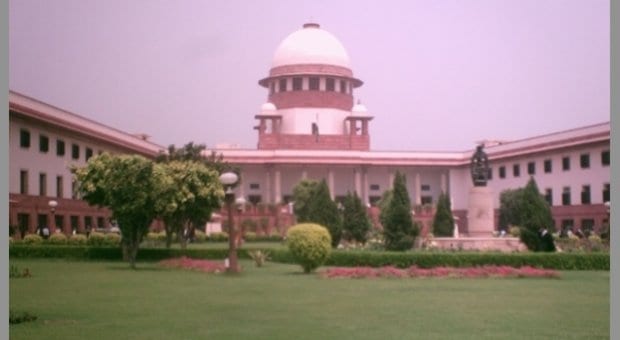India’s Supreme Court agreed April 3 to consider a curative petition challenging its ruling that effectively recriminalized gay sex, NDTV reports.
The court, which had previously dismissed government and human rights activists’ petitions seeking to have its decison reviewed, said in its Dec 11 ruling that only the country’s parliament could change the colonial-era law, widely known as Section 377, that prohibits “carnal intercourse against the order of nature.”
An outpouring of anger and criticism followed the ruling, which set aside a 2009 Delhi high court decision that struck down Section 377, with many in India and abroad characterizing it as a significant setback for human rights in the country.
In the latest challenge, petitioners, including the Naz Foundation, state, “This Court has incorrectly held that a minuscule fraction of population cannot claim fundamental rights, thereby rendering the Part III of the Constitution meaningless for all individuals and minority communities in India. This finding has caused immense public injury and if not rectified, would have dangerous implications on the enforcement of fundamental rights of citizens. The judgment reflects an issue of bias against the Lesbian Gay Bisexual & Transgender (LGBT) persons.”
Gay rights activists argue that in the four-year period after the Delhi court’s decision, thousands of people became open about their sexuality. They maintain that the Supreme Court’s decision to subsequently uphold Section 377 opens them up to prosecution “on account of the association between homosexuality and penile-anal/penile-oral sexual acts.”
Legal advocates for the petitioners want the Supreme Court to grant a request for an open court hearing of the case.
In its 2009 ruling, the Delhi court said that Section 377, “insofar as it criminalises consensual sexual acts of adults in private, is violative of Articles 21, 14 and 15 of the Constitution,” specifically, the right to personal liberty, equality before the law and protection against discrimination based on religion, race, caste, sex or place of birth, respectively. “We hold that sexual orientation is a ground analogous to sex, and that discrimination on sexual orientation is not permitted under Article 15,” the judgment states.


 Why you can trust Xtra
Why you can trust Xtra


